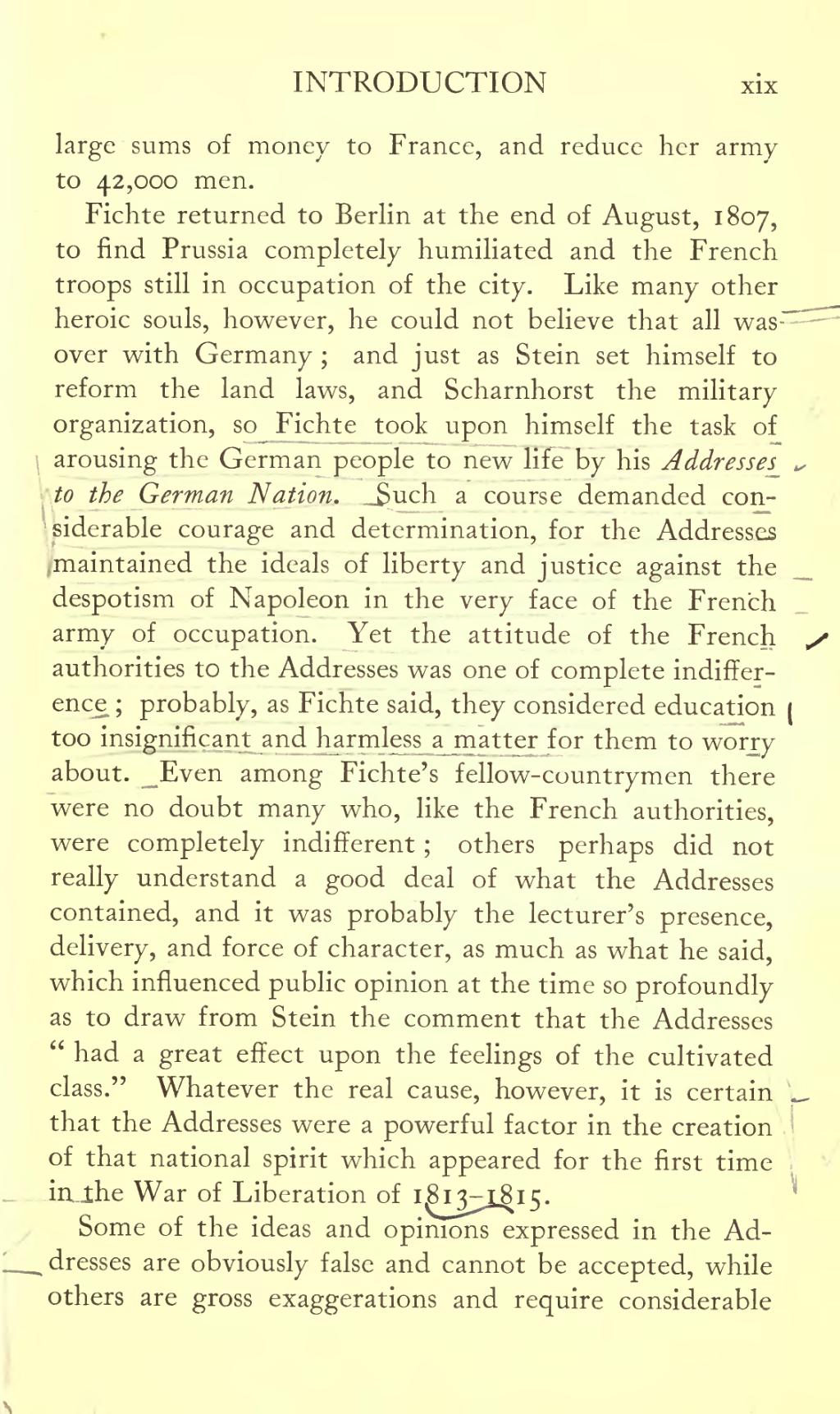large sums of money to France, and reduce her army to 42,000 men.
Fichte returned to Berlin at the end of August, 1807, to find Prussia completely humiliated and the French troops still in occupation of the city. Like many other heroic souls, however, he could not believe that all was over with Germany; and just as Stein set himself to reform the land laws, and Scharnhorst the military organization, so Fichte took upon himself the task of arousing the German people to new life by his Addresses to the German Nation. Such a course demanded considerable courage and determination, for the Addresses maintained the ideals of liberty and justice against the despotism of Napoleon in the very face of the French army of occupation. Yet the attitude of the French authorities to the Addresses was one of complete indifference; probably, as Fichte said, they considered education too insignificant and harmless a matter for them to worry about. Even among Fichte’s fellow-countrymen there were no doubt many who, like the French authorities, were completely indifferent; others perhaps did not really understand a good deal of what the Addresses contained, and it was probably the lecturer’s presence, delivery, and force of character, as much as what he said, which influenced public opinion at the time so profoundly as to draw from Stein the comment that the Addresses “had a great effect upon the feelings of the cultivated class.” Whatever the real cause, however, it is certain that the Addresses were a powerful factor in the creation of that national spirit which appeared for the first time in the War of Liberation of 1813-1815.
Some of the ideas and opinions expressed in the Addresses are obviously false and cannot be accepted, while others are gross exaggerations and require considerable
